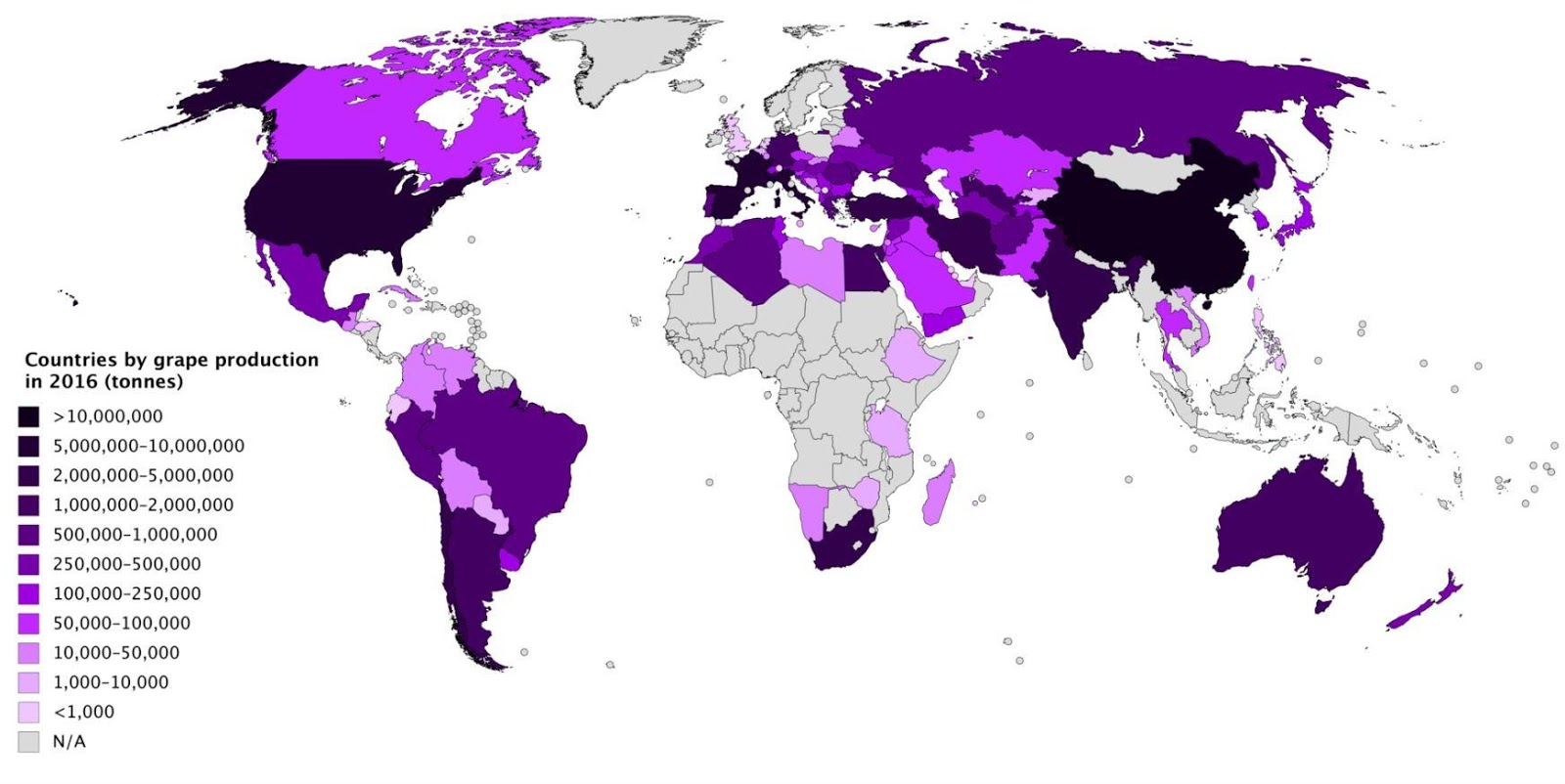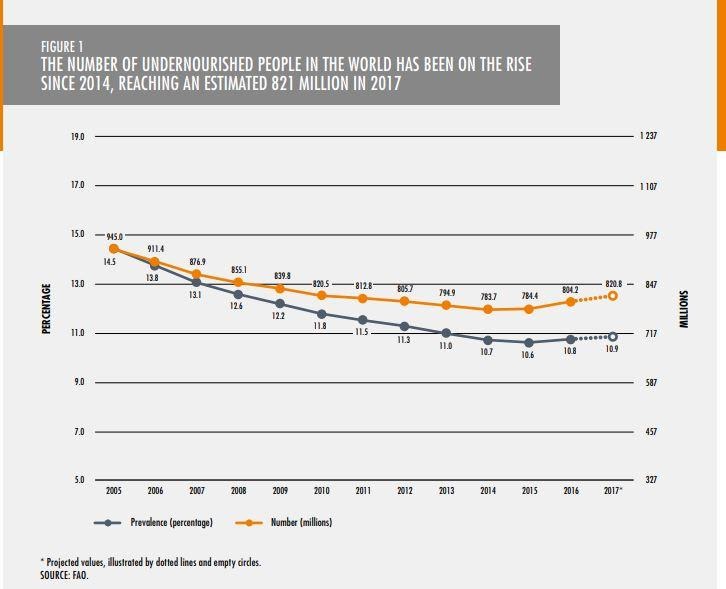As the world’s population approaches eight billion, we need a new agricultural revolution to feed us all. But farmers alone can’t increase production. Only by harnessing technology and working together can the way we produce food be transformed.
What is becoming known as Agriculture 4.0 uses big data analytics, robotics, remote sensors and drones to help farmers make the most of their land without harming the environment.
Here are five projects from around the world that are putting these processes into practice.
1. Precision farming to maximize yields
Technology allows farmers to measure and analyze their fields as never before. GPS data and automated sensors empower informed decision-making about the use of water, fertilizer and pesticides with pinpoint accuracy within individual fields.
Using a technique known as Precision Viticulture, grape farmers in the Indian state of Maharashtra used large-scale data collected by GPS mapping, soil sensors and yield monitors to increase their harvest. The results have helped propel India into the top 10 of global grape producers.

Source: Wikimedia
2. Tackling food scarcity
The UN Food and Agriculture Organization says the world is getting hungrier, with one in 10 people experiencing chronic food deprivation. But technology is being used to address the problem.
In China, the National Rural Comprehensive Information Service Platform (NRCISP) delivers data to farmers about everything from weather to seed varieties and soil types.
And in India, where the UN says more than 46 million children suffer stunted development due to poor nutrition, AI is already helping farms to boost yields by identifying the optimal time to plant and harvest their crops.
For example, the rural mobile services platform mKRISHI from Tata Consultancy Services (TCS) shares data on climate, soil conditions, seed and market prices with hundreds of India’s farming collectives across 10 states. The service has cut input costs and boosted farm incomes.
The goal is to increase the current 1 million users to 10 million and ensure farmers are always able to feed their communities.

3. Helping the wider community
While Agriculture 4.0 can reduce the need for human labour in some farming activities, by improving productivity and output it can also generate jobs and boost rural incomes. As farmers grow a greater amount and a wider variety of crops, the number of jobs in food processing increases.
The data that is improving farming can also be used to help communities. Mapping local produce and community skillsets to local and global demand can provide the basis of customized rural development programmes.
4. Reaping the benefits of data
Across the world, improved understanding driven by better agricultural data is changing government policy. In the UK, the government has committed to spending $112 million to drive a digital transformation as part of its recent plan for farming and the environment post-Brexit.
The government-sponsored Agrimetrics aims to collect data from 1.6 million fields to give farmers across the UK better insights into improving crop yields. One of the country’s biggest water utilities firms recently appointed its first-ever Chief Data Officer to lead a team using big data analytical tools to drive social transformation by ensuring a resilient water supply.
In India, water charity Gram Gaurav Pratishthan, working with a local voluntary water council, used data about rainfall and water resources to empower the community to solve their own water deficiency problems, instead of relying on irrigation engineers or local politicians.
5. Increasing trust
Combining individual farm data with information gathered along the food supply chain can increase transparency, helping build and maintain trust among consumers in the products they buy and eat.
“A new digital agricultural revolution, Agriculture 4.0, is taking hold as big data analytics, robotics, sensors, and drones become a part of the farm-to-fork value chain,” says Paul D Wood, a Data and Analytics Strategy Advisor in the Analytics and Insights unit at TCS, UK.
By letting consumers know more about how their food was grown and processed, Agriculture 4.0 promises to not only boost productivity and efficiency, but also to increase trust.
This is a summary of some of the articles that appear in the Tata Consultancy Services pArIvartana report on the Role of Data and Analytics in Social Transformation. The report showcases how a diverse set of highly motivated experts including CxOs, industry leaders, economists, academicians, researchers, social entrepreneurs, philanthropists have made a positive, and sustainable impact to the community. You can read more about this work here

